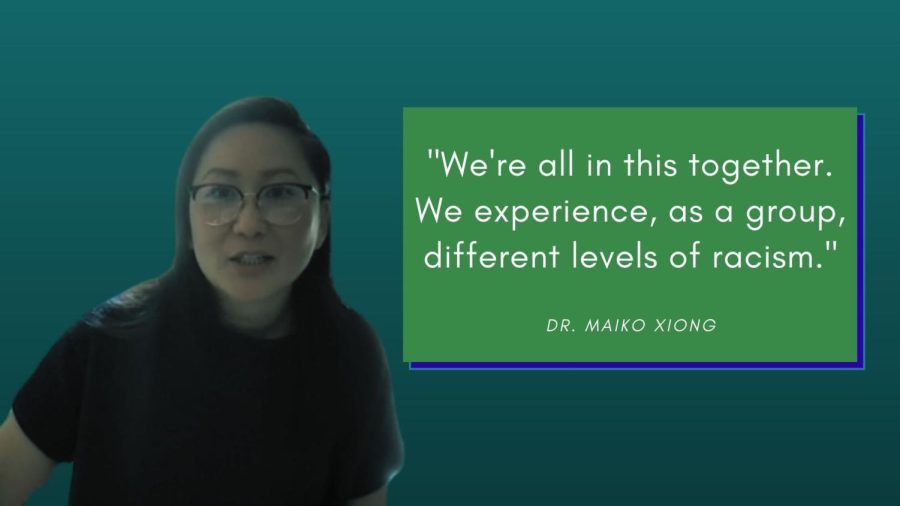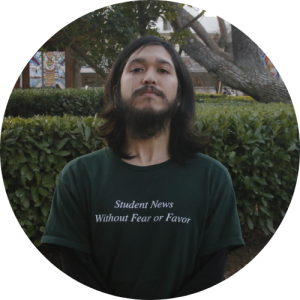Sac State webinar breaks down stereotypes and the “model minority” mythos.
Sac State Asian Pacific Islander and Desi American students share their stories of discrimination and adversity
Assistant Professor of Counselor Education Maiko Xiong gave a presentation about the myth of the “model minority” towards Asian Pacific Islander and Desi American community during a Zoom webinar on Feb. 4. She discussed coping strategies as well as a collective call to action against racism.
February 8, 2022
With racial tensions toward Asian Pacific Islander and Desi American Community members on the rise, four Sacramento State students stepped up and spoke out during a Zoom webinar titled “To be Seen is to be Heard: Moving Beyond the Model Minority”.
In the online event, APIDA students discussed the impacts and expectations around the “model minority” stereotype and societal expectations placed on APIDAs such as the idea that they come from a privileged background or always have good grades.
After opening remarks from Sacramento City Councilwoman Mai Vang and Vice President of Student Affairs Ed Mills, Communications Major Litia Tokalautawa spoke about her experiences growing up and going through college as a Fijian American.
Born in St. Louis, Tokalautawa moved to the Fijian islands with her parents when she was two. She moved back to the U.S. ten years later and enlisted in the army after graduating high school. Even in that environment, she said she faced discrimination from her peers and superiors.
“In the military, when they look at me, they automatically assume that I’m African American,” Tokalautawa said. “I’m always adamant about saying that I’m not. I’m Fijian.”
Another student, criminal justice major Chi Meng Vang struggled with the concept of the “model minority,” as he grew up poor and struggled with school at times while facing pressure from his parents to succeed.
“I am not good at math, even though I am Asian,” Vang said. “I’m not a very smart student, but I always tried my best in those courses because I don’t want my parents to be disappointed in me.”
A perpetual stereotype discussed during the webinar is the idea that many APIDA students, especially those from overseas, come from privileged backgrounds, having money or a robust support system.
For some APIDA students, however, that is not the case. International third-year student Maanvee Mehrotra came from India in 2018 and struggled with the culture shock of being independent and away from home for so long.
“I lived in a village, and my parents sent me and my brother to a boarding school for eight years of our life,” Mehrotra said. “So we were always away from home.”
She described how financially and emotionally taxing it is being away from home to get her education to help provide for her family and the feelings of emotional isolation from being away from her family.
“There is a lack of familial support. No matter how many friends I have, how much support I have, I feel lonely because I don’t have someone like my parents.”
After the students spoke of their experiences, Assistant Professor of Counselor Education Maiko Xiong gave a presentation about how the “model minority” myth was portrayed by the media, especially in regards to APIDAs.
“The academic achievement and success of APIDAs was used to highlight this American success story,” Xiong said. “And that they were seen as this group that should be admired by others.”
She brought up different methods to cope with and challenge the stereotypes placed on the APIDA community, such as giving counter-narratives, seeking social support and calling for collective action against racism.
“We need to remember that, in a way, we’re all in this together,” Xiong said. “We experience, as a group, different levels of racism.”




































































































































